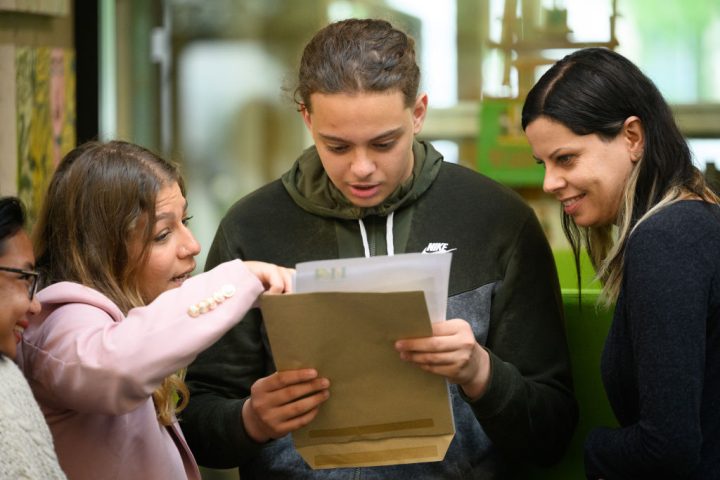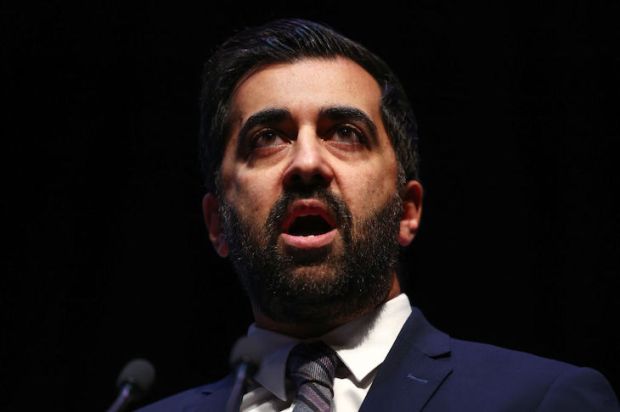For the first time in 27 years, I have no personal stake in the GCSE results that are released this morning. I did not teach Year 11 last year, so I will not be poring over statistics to explain the performance of my class to my superiors in school.
Sadly, statistics, ‘value added data’ and performance metrics too often eclipse what today should be all about: young people who, perhaps for the first time in their education, were left in an exam hall with a sheet of questions and a ticking clock.
When grade inflation strikes, no interest is ever paid on grades already in the bank
As teachers we can do so much, but when those students go into that room, they are on their own. The results they receive today do not belong to their teachers, and certainly not the government, so let’s just say well done to one and all. And anyone who feels fit to moan about the standard of exams could maybe put their money where their mouth is and sit a few themselves next year. Grade 9 – the highest award on the current scale – is easier to criticise than it is to earn.
Earlier this week, reports suggested that there will be rather fewer of those top grades this year, and that is probably a good thing. Teacher predictions replaced exams in 2020 and 2021. Like many of my colleagues, I filled in the mark sheets, and supplied reams of supporting evidence. I don’t expect anyone actually looked through my paperwork, but I can say that all of my teacher assessed grades were a fair reflection of what each pupil could achieve as long as nothing went wrong. One factor I did not include was the propensity of pupils to mess up an exam paper.
In the real world – or at least the real exam hall – all sorts of things can go wrong. Some children are unlucky. Maybe they did not revise a topic that came up, or perhaps they misread a question. They do that often enough in class that I have annotation ready at hand: RTFQ, read the flipping question!
Everything goes into the mix, and it’s time for grades to return to pre-pandemic levels, at least for the sake of those children who sat the exams in 2019 and previous years. When grade inflation strikes, no interest is ever paid on grades already in the bank.
GCSEs, of course, evolved from the old O-Levels, which for most youngsters were effectively school leaving exams. Even I can remember management roles being advertised as requiring ‘5 or more O-Levels at grade C or above’.
I suspect that these days many now insist on a degree, but the old grade C – or grade 3 as it is now – has remained in the consciousness of ministers as something of huge significance. In truth it is an arbitrary level that is fixed by committees with one eye on the standard of exams but, I suspect, another on the impact on the final statistics. If the government wants the numbers exceeding the benchmark to increase, then there is a simple remedy – find an excuse to push down the grade boundary.
So, have GCSEs now had their time? The school leaving age has been raised so pupils are now required to stay on in education by law if not by choice.
As a teacher, I would argue to keep them. In the main, exams focus the mind. The next stage, A Levels, is a narrow curriculum. Most sixth formers study just three subjects so this is the point at which most subjects get left behind. Without an exam, interest and progress might just fizzle out slowly during Years 10 and 11. And perhaps especially among boys.
For my youngest son’s cohort and the one that followed, GCSEs are the only exam results they have to show from their 13 years of education. His A Levels were cancelled in 2020. Many of his cohort then found themselves victim to the ongoing university lecturers’ dispute. While they did sit their finals, some of their papers have gone unmarked. Awards based on ‘this is what we think you would have got’ is a poor substitute for the real thing.
One statistic that may well trouble me again today is the underperformance of boys. There are lessons to be learned from an education system that perhaps rewards diligence and perseverance more than it does initiative and risk-taking. While the former is undoubtedly important, the world of work would be a far duller without the latter.
But that aside, let us not wallow in data, analysis and postmortems over these exam results. They are not principally about schools or teachers – let alone politicians – but the young people who achieved them.
Got something to add? Join the discussion and comment below.
Get 10 issues for just $10
Subscribe to The Spectator Australia today for the next 10 magazine issues, plus full online access, for just $10.




















Comments
Don't miss out
Join the conversation with other Spectator Australia readers. Subscribe to leave a comment.
SUBSCRIBEAlready a subscriber? Log in